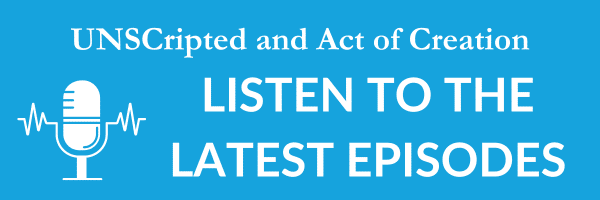
TIMBUKTU — Down the road from the 700-year-old iconic Djinguereber mosque in this north-central Malian city lies the Al Qadi library, a private, family-owned collection holding hundreds of manuscripts from nearly a millennium ago. The manuscripts are priceless treasures of African history that experts say cover a range of topics, from minute religious law disputes to poetry about love.
But if you ask Mouctar Cissé, the librarian and inheritor of the documents, about the content of a specific manuscript, he is at a loss. Instead, he will hand you a paper showing the prices to film the manuscripts as they gather dust in a small room with a single ceiling fan: $50 for pictures and $200 for filming.
It appears that for now the manuscripts are considered objects to be exploited as props for documentaries and not as sources of knowledge, inspiration and amazement for scholars or the general public. While children in Timbuktu schools still learn the history of French colonial conquest, Cissé works with a team of two other people to catalog the manuscripts by their name, period they were written and number of pages.
What is captured in the manuscripts is not relayed to the residents of Timbuktu or beyond in any meaningful way.
Mali has probably the most illustrious history in West Africa. It was home to the capitals of the Ghana, Mali and Songhay empires, all of which held extensive territory throughout half of Africa and had sophisticated governance systems. Hundreds of thousands of manuscripts, written mostly in Arabic but also in Bambara, Malinké, Peul, Songhai, Soninké and other local languages, attest to an incredibly vibrant literary culture, while Europe was cloaked in the dark ages.
But no current efforts are underway anywhere in Mali to regularly translate the manuscripts from classical Arabic into English or French or to make them available to citizens at large.
While students in American and European universities do Ph.D.’s in nearly every imaginable topic of history around the world, hundreds of thousands of primary-source documents, some more than a millennium old, are not even indexed.
Howard French, a former journalist with The New York Times who covered West Africa and other regions and is a journalism professor at Columbia University in New York, says the lack of translation of the manuscripts has to do with the history of European economic expansion.
“Africa doesn’t have this continuous story of economic vitality and interest for the Europeans,” since trade in East Asian spices and silver mining in the Americas were worth much more than gold at the time of early European expansion, French explained in an interview at Columbia recently.
When Europeans took an active economic interest in Africa, they were focused on the slave trade.
“Modern Western wealth is founded, to a very substantial extent, on the African slave trade,” French said. “When anyone goes to an old European capital, and you see the majesty and splendor, a huge amount of that stuff was built on the wealth accumulated through the slave trade.”
Because Europeans and European-descended people are guilty about abducting and trading millions of humans from the African continent for 500 years, they must justify why they did it. “Discounting the possible intellectual importance of Africa is vital to the sanctity of the West’s self-image,” French said.

The manuscripts were mostly located in the north of Mali when jihadist groups allied with Al Qaeda took over the region in 2012 and imposed their medieval vision of a state on the desert inhabitants. They shattered shrines of saints in Timbuktu and burned thousands of manuscripts, forcing a well-documented rescue operation to whisk away, in secret, almost all of the remaining manuscripts to the country’s capital in Bamako — some 620 miles south — by road and by boat.
Since they have arrived in Bamako, the manuscripts are mostly under the control of an organization called Savama, run by Abdel Kader Haidara and the Ahmed Baba Institute of Higher Learning and Islamic Research, which has permanently moved its operations from Timbuktu and is led by the soft-spoken Abdoulkadri Idrissa Maïga. (Original funding for the institute came from Unesco and Kuwait and, later, South Africa.) Both men are from the north and have spent their adult lives around the ancient documents.
The Ford Foundation primarily finances Savama: since 2004 it has provided $2 million to it to preserve and digitize the manuscripts; Ahmed Baba is owned by the Malian state. In 2014, Unesco estimated the total preservation project would cost $11 million.
Because of the haphazard way in which the manuscripts were moved to Bamako, they are essentially stacked in unordered piles throughout the different locations in which they are stored in the capital. Savama is currently cleaning each of the manuscripts under their jurisdiction and photographing each page to preserve them digitally. When asked if Savama plans to translate any of the documents, Haidara said there was a potential plan to do this but it would happen only after the digital cataloging is completed. That could years.
The manuscripts place West African empires among the other major civilizations studied around the world. They are key to understanding the history of Africa and its effect on the rest of the globe, the extent of which is vastly underestimated. A thorough study on the empire of Mali at the time of Mansa Musa — possibly the world’s richest man and kingdom during the 14th century and one of the largest territories under one rule — could provide clues as to how Francophone West Africa might regain its strength and stabilize more than 50 years after independence from French colonial rule.
Revealing what is written in the manuscripts would not only educate people in Mali on their own long-ago past, but it could also compel America and Europe to confront their own justifications for their ill-gotten wealth from slavery for centuries. Translating the manuscripts could also provide insight into a more humane way of governance that existed in West Africa, offering a comparison on how European and American governments generally rule.
America’s history is inextricably linked to that of West Africa: West African slaves built, for example, the seat of US power, the White House. If the manuscripts were translated, “our entire self-image of being civilized, ethical, moral and self-righteous would be imperiled by this sense of guilt,” French said.
“And so it has been important from the very early days of the slave trade until today, to build a construct of a lack of African achievement, a lack of African excellence, intellectual history, experience of self-government and thought.”
Please donate to PassBlue.
Joe Penney is a writer, filmmaker and photographer who lives in Brooklyn, N.Y., and Lagos. He directed a documentary, “Sun of the Soil: The Story of Mansa Musa,” about the reign of Mali’s 14th-century king. Penney’s articles and essays have been published by The Intercept, The New York Times, Quartz, Reuters and Paris journals. He was West African photo bureau chief for Reuters, and his pictures have appeared in Geo, Jeune Afrique, Le Monde, The Guardian, The Los Angeles Times, The New York Times, The Washington Post, The Wall Street Journal and Time, among others. He has photographed presidential elections in Guinea, Guinea-Bissau, Mali, Mauritania, Nigeria, Senegal and Sierra Leone as well as the 2012 coup in Mali and the French military intervention in 2013, Mauritanian refugee camps, mining sites in Niger, migrants in the Sahel, counterterrorism campaigns in Cameroon, the 2013-2014 conflict in Central African Republic and the people’s coup in Burkina Faso in 2014. Penney co-founded Sahelien.com, a news company covering the Sahel region, in 2013. In Africa, he has lived in Ivory Coast, Mali and Senegal. He graduated from McGill University in Montreal and speaks English, French and Spanish.














I have recently completed a Phd (UNISA, South Africa October 2018) comprising the full annotated translation of a Mauritanian manuscript on Islamic Jurisprudence from Arabic to English with a commentary on its major themes. This, I believe, is the the first such complete translation of an Arabic (Ajami) West African manuscript.
faaikg@gmail.com
Pertaining to the manuscripts and attempts of translating the information in them are the any historical records that mention the information that is in the manuscripts
Your readers may be interested to know that the Hill Museum & Manuscript Library, a US-based non-profit (www.hmml.org), is the digitizing partner with SAVAMA; the photo in the Blue Pass August 2014 story is from the studio we established and fund at SAVAMA. There are now twelve cameras operating full-time, and the manuscripts are beginning to appear online at http://www.vhmml.org. There you’ll find 1500 items, and we will be adding 500-1000 each month.
Thank you Mr Stewart. I did translate tens of these manuscripts. please send me your email, I will forward some of the translations and commentaries.
Did you by any chance publish any of them?
No but I think Sahelien.com did. –Editor
please can I also get copies of the translations . amazingkheni@gmail.com